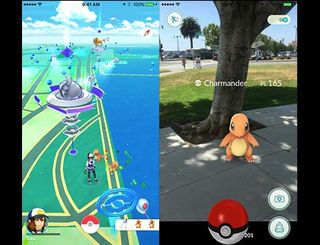Analyst: After Pokémon Go, Mobile Should Be Nintendo’s Focus

After peaking at around 45 million daily active users worldwide in late July, there’s been a considerable drop-off of daily users of the mobile augmented reality game Pokémon Go, according to a recent analysis by Bloomberg.
And while daily users of the gaming app stands at around 30 million, Nintendo — which has a 32% share of the Pokémon franchise — saw more than its stock price jump because of the game.
Related: VR eSports Start-Up Raises $6.2 Million
In July, Nintendo saw sales of its 3DS mobile gaming system jump 50% year over year in July, “an astonishing feat for underpowered hardware nearing the end of its lifespan,” according to Joost van Dreunen, CEO of research firm SuperData. Combined sales of three Pokémon franchise games for the 3DS also nearly doubled, with Pokémon Go being the only explanation for the unexpected jump, van Dreunen said.
An Aug. 22 report from research firm The NPD Group backed van Dreunen up: combined spending for the 3DS and its predecessor the 2DS jumped 44% to $28 million in July. “The 3DS also saw an increase in unit sales of 18%, making the combined 2DS and 3DS platforms the best-selling hardware for July,” said Sam Naji, video game industry analyst for NPD.
Related: Study—In-Home Traffic Via Smartphones, Tablets Catching Up to PCs
Pokémon Go was the most successful mobile launch in history, with record levels of first-month downloads and revenue, and for Nintendo, a sign that consoles may not be its path forward for financial success: licensing its IP to others and then attracting non-traditional gamers to handhelds may be the way to go, van Dreunen said.
Broadcasting & Cable Newsletter
The smarter way to stay on top of broadcasting and cable industry. Sign up below
“For Nintendo this is great evidence for the value of their IP and what it could mean for the mobile space,” he said. “It’s unlikely, but it would be great for audiences everywhere if Nintendo were to get more involved in porting its IP to mobile.
Related: Twitch Grabs Gaming Content Company Curse
“However, the dominance of Apple and Google in the space [may] prevent Nintendo from making a big move, because they historically insist on having control over both the hardware and software.”
